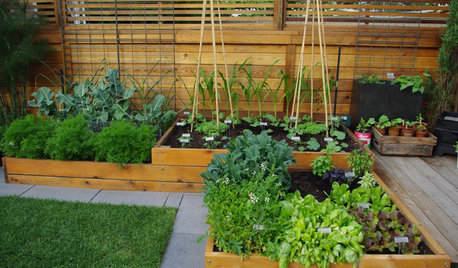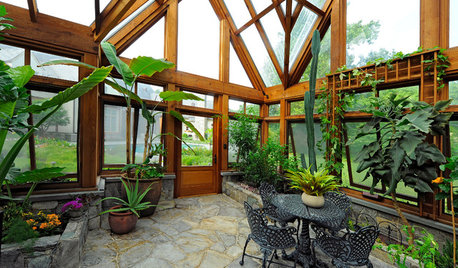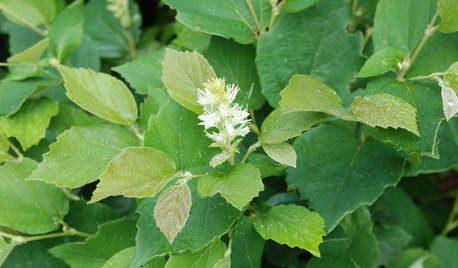Tilling your garden
tropheus
16 years ago
Related Stories

GARDENING GUIDESGreat Design Plant: Sedum (Stonecrop)
Terrific at filling gaps and in a wide range of colors and shapes, sedum is a problem solver in the garden
Full Story
GARDENING GUIDESGreat Design Plant: Sea Holly
Its spiky appearance can be intimidating at first, but sea holly's range of climate tolerances and vivid color make it a landscape winner
Full Story
URBAN GARDENSExperiments Aplenty Fill Vancouver Edible Garden
Lush and brimming with test landscape plantings, a Canadian garden appeals to the eye and the palate
Full Story
EDIBLE GARDENSThe Enticing Garden: How to Grow Bananas
Sweeten your dining table with surprising flavors of banana cultivars while adding tropical flavor to your garden
Full Story
MOST POPULARHow to Start a Cool-Season Vegetable Garden
Late summer and late winter are good times to plan and plant cool-season crops like salad greens, spinach, beets, carrots and peas
Full Story
GARDENING GUIDESGreat Design Plant: Meadow Blazing Star (Liatris Ligulistylis)
Make fast friends with the monarch butterflies and get a color show too with this adaptable U.S. Midwest native
Full Story
GARDENING GUIDESGreat Design Plant: Wildlife-Loving Dwarf Fothergilla Blazes in Fall
Its bottlebrush flowers attract bees and butterflies, while its stunning orange and scarlet foliage draws all who pass by
Full Story
GARDENING GUIDESTexas Gardener's October Garden Checklist
Earn a "free" bonus by dividing perennials, make planting a priority now for hardy growth next year and keep an eye on your lawn
Full Story
Guest Picks: Herb Gardens for Small Kitchens and Gardens
Up the wall, easily portable or beautifully decorative, these solutions help even the smallest kitchens and balconies get growing
Full Story
GARDENING FOR BUTTERFLIES3 Ways Native Plants Make Gardening So Much Better
You probably know about the lower maintenance. But native plants' other benefits go far beyond a little less watering and weeding
Full Story







ole_dawg
crabjoe
Related Professionals
Surprise Landscape Architects & Landscape Designers · New Mexico Landscape Architects & Landscape Designers · Burlington Landscape Contractors · Canton Landscape Contractors · Belvedere Park Landscape Contractors · Davis Landscape Contractors · Deerfield Beach Landscape Contractors · Hilo Landscape Contractors · Huntley Landscape Contractors · Munster Landscape Contractors · Reedley Landscape Contractors · Wethersfield Landscape Contractors · East Norriton Landscape Contractors · Crowley Driveway Installation & Maintenance · Providence Driveway Installation & MaintenancetropheusOriginal Author
carol_71
ruthieg__tx
digdirt2
carol_71
aka_peggy
ruthieg__tx
carol_71
kubotabx2200
Karen Pease
maineman
tomakers
gonefishin
kabuti
Karen Pease
soonergrandmom
crabjoe
kkfromnj
kubotabx2200
ecopit
Karen Pease
Karen Pease
wce5204
Karen Pease
Karen Pease
crabjoe
Karen Pease
kubotabx2200
amigatec
Karen Pease
wce5204
oldroser
Karen Pease
kkfromnj
macheske
kkfromnj
billtex
macheske
gonefishin
kkfromnj
kkfromnj